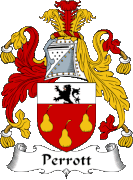Edinburgh Evening News (Edinburgh) –20 November 1912
ALLEGED COMMUNICATION OF NAVAL SECRETS. CHARGE AGAINST AN EX-NAVY MAN.
The grave allegations against the ex-Naval gunner, George Charles Parrott, of Jaer Street, Park Road, Battersea, were further investigated before Mr Francis at Westminster Police Court today.
The charge is one of having communicated official information in a manner prejudicial to the safety and interests of the State, and in contravention of the Official Secrets Act of 1911. As outlined on Monday by Mr. Bodkin, the case against the prisoner is that on Saturday, July 13th, of this year, having first obtained leave from his ship, H.M.S. Pembroke, at Sheerness, he left for Dover, crossed the Channel to Ostend, observation being kept upon him meanwhile, and was joined at Ostend by a foreigner. He returned to England the same night, and next day was at Sheerness in uniform. On August 14 he was removed from the Navy List. Parrott was arrested on Saturday night at a tobacconist’s shop in Chelsea, where a letter which had been handed to him was found to contain two £5 bank-notes and a request that the recipient should leave London, and make inquiries with regard to the movement of the fleet. The court was crowded when the proceedings were resumed. Mr A. H. Bodkin prosecuted, and Mr V. Dimmer represented accused.
POLICE INSPECTOR’S STORY. Inspector Riley, who, with Inspector Parker, arrested the prisoner, was recalled, and produced the fiat of the Attorney-General authorizing the prosecution. Among the articles found at prisoner’s lodging, said witness, was a return ticket from Grimsby Dock, two insurance policies, one in the name of “A. Couch, 17 Padget Street, Gillingham,” six picture postcards, and a draft letter to the Commodore. The Magistrate asked Mr Dimmer, defending, whether there was any mystery about the fiat which had been produced. Mr Dimmer replied, “No sir; not now.”
Mr Dimmer, cross-examining: Did you find among the articles any plans of documents relating to the British Navy? –I did not. Any models of ships or fortifications? –No, sir. There was a picture postcard. Who was it addressed to? Mrs. G. C. Parrott. Witness added that there was a postcard of H.M.S. Vincent. Mr Dimmer: Did you find any naval documents at all? A. –Only certificates regarding his service. Are the picture postcards of such a nature that they can be purchased at any shop? –Yes, at a seaport town. Everyone has a halfpenny stamp on? –Yes.
Mr F. F. Hallamby, clerk in the Account-General’s department of the Post Office, produced an original telegraphic message, handed in at Sittingbourne, on July 11th. It was a foreign telegram form, with the name of a foreign addressee.
Detective-Inspector Gray, Metropolitan Police, attached to Chatham and Sheerness Dockyards, said that on July 13thlast he saw the prisoner in a secondclass carriage of a train going to Sittingbourne. A lady was apparently travelling with him, but at Sittingbourne Parrott got into the Dover train alone. He alighted at Dover Priory Station, and after making a tour through the town, went to the offices of the Belgian Steamship Company, and thence to the Admiralty Pier. Witness spoke to the prisoner on the jetty, and asked him his name. Prisoner replied “Parrott,” and said that he lived at Chatham. Witness asked what he was, and prisoner replied a civilian. Witness questioned him about the contents of a small hand-bag he was carrying, and prisoner was about to open it. Witness took him to an office and searched. On a piece of paper in a cardcase he found a typed address which prisoner said was that of a lady friend. Witness pointed out that it was a man’s name, and Parrott thereupon replied, “Oh that is a nom de plume which she wrote to me in.” Prisoner added: “Is it on account of the lady that you are searching me?” Witness replied that he was making the search under the Public Stores Act. “I do not mind,” said the prisoner, adding, “I have an appointment.” A LADY FRIEND. “I am going to meet the lady at eight o’clock tonight at Ostend.” Witness continued the search, and found a naval signal form, with a message in it addressed to Mr Parrott. He said to the prisoner, “I see you are in the Navy,” Prisoner admitted that he was a gunner, and said, “I hope you wont’ tell my wife anything about the woman.” Witness asked if the prisoner had any right to leave the county, and Parrott replied that he knew of no order prohibiting it. Prisoner left Dover by the Ostend boat at 4.40.
